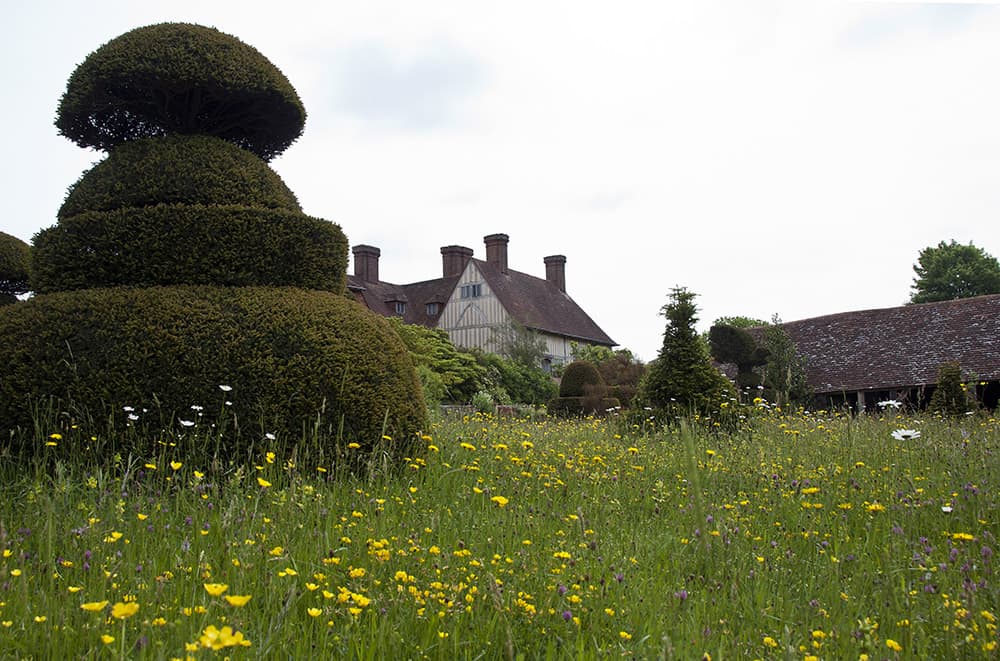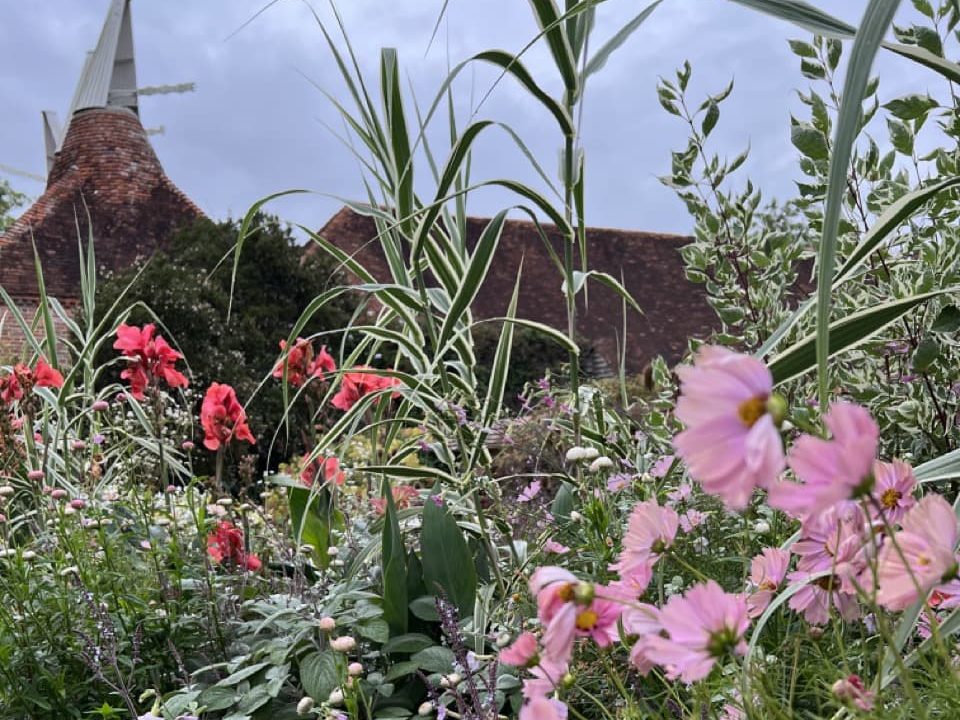Fergus Garrett: ‘My Soul And Heart Is Linked To Great Dixter’

Contributions From FERGUS GARRETT

Fergus Garrett is an esteemed Horticulturist and Chief Executive of the Great Dixter Charitable Trust, where he has been instrumental in shaping the direction and vision of the iconic Great Dixter gardens. His significant contributions to horticulture have been recognised with several awards including the RHS Associate of Honour (2008), the Veitch Memorial Medal (2015) and the Victoria Medal of Honour (2019).
Nestled in the verdant landscape of East Sussex lies Great Dixter, a historic house with gardens that capture the imagination and inspire gardeners worldwide.
At the heart of this horticultural haven is Fergus Garrett, a distinguished figure in the world of gardening who has been the Head Gardener at Great Dixter since 1992, working closely with the late Christopher Lloyd, a renowned Plantsman and Author.
In this exclusive interview, we delve into the life and mind of Fergus, exploring his journey, philosophies and the legacy he continues to build at Great Dixter.
Garrett, known for his dynamic approach to planting and his commitment to biodiversity, shares insights from his decades of experience, offering a unique perspective on the art and science of gardening.
Find the full interview with Mollie Brown here:
Please note that the images used in this article are provided with permission by Fergus Garrett.
How did you venture into the world of horticulture?
“It’s all down to inspirational people I’ve met across the years,” says Fergus.
“My Geography teacher at school taught us about West African agriculture and I was fascinated by this. I was also interested in Biology and Chemistry and those sorts of things. So, he said to me, you ought to go to university to study something land-based.
“So, I decided to make that leap and go to university and I then became passionately involved in horticulture and here we are! From university, I went and worked at Brighton Parks Department, which was fantastic, and then I went and did some landscaping and did various jobs across the world.
“I then landed at Dixter and really got into the actual skill of gardening which is where I’ve stayed.”
What does a working Day look like for you?
“A big part of my day is actually being out in the garden with the team,” he explains.

“I’ve got a really great team and we’ve got lots of students as well, so it’s a very vibrant atmosphere where we’re trying new things all the time. Every day is exciting.
“But then there are other responsibilities because I’m CEO, so I’ve got to take care of the finances and the way the place is run. We could easily run this place as some, as a place that made loads and loads of profits, but we don’t do that.
“We try and give as much as we can to the people around us, the community and people in the horticultural world.”
Do you have a particular favourite memory from your time at Great Dixter?
“My most favourite memories are with Christopher Lloyd – he was my great mentor. We’d already formed a good friendship by the time I started working at Dixter, but it became stronger and stronger that friendship and he became like a father figure.
“We spent a lot of time together, whether that was sitting on a sofa discussing plants, or whether that was supporting each other through hard times. I have wonderful memories of that man.
“He was a beautiful person in many, many ways and my heart and soul is linked to this place through him and the memories of him.”
How do you balance the more traditional aspects of horticulture with the need for innovation and change, especially because of the changing conditions in the environment?
“First things first, Dixter has never been a traditional place,” Fergus states.
“It’s got a traditional infrastructure, but the actual horticulture within it, the playing around with plants within it, has always been non-conformist, flexible and innovative. That began with Christopher Lloyd and has been instilled in us here.
“So, if we find that something doesn’t do well because of climate change we change it without any problem at all. Also, we never do the same thing and we constantly experiment with new ideas as well. Our tradition is to be experimental.

“In regards to the changing climate, it’s not just about recycling. It’s about the green ethics of the people that you’re buying from and forming associations with. It’s going to cost you more money, but we’re going down that route to try and actually do something as a company to make a difference.
“There are lots of changes that have already been made at Dixter, but there’s a lot more to make as well. It’s about going as deep as you can into this.”
Is there any fundamental advice you’d give to someone who’s just starting out in gardening?
“Try and work in a garden where they’re going to teach you,” he suggests.
“There are loads of inspirational people out there, so go to a place that takes that responsibility of teaching you seriously and then work hard for them and they’ll open doors for you in many ways.
“Try and go and see plants in the wild if you can. Everybody sort of focuses on garden design, but actually the best garden designers have a real knowledge of what goes on in the wild as well.
“Also, be really aware, of the environment, the planet and sustainability. We shouldn’t be gardening with chemicals, the industry shouldn’t be using herbicides and pesticides and all of those things, so be aware of that. You want to have best practice because we’ve done enough of that in the past, so that’s really quite important.
“Read, observe, visit gardens, find somewhere where you’re going to enjoy the people and enjoy the work. Work hard – that’s really important.
“Learn and be really sensitive to the environment that you’re working in.”

